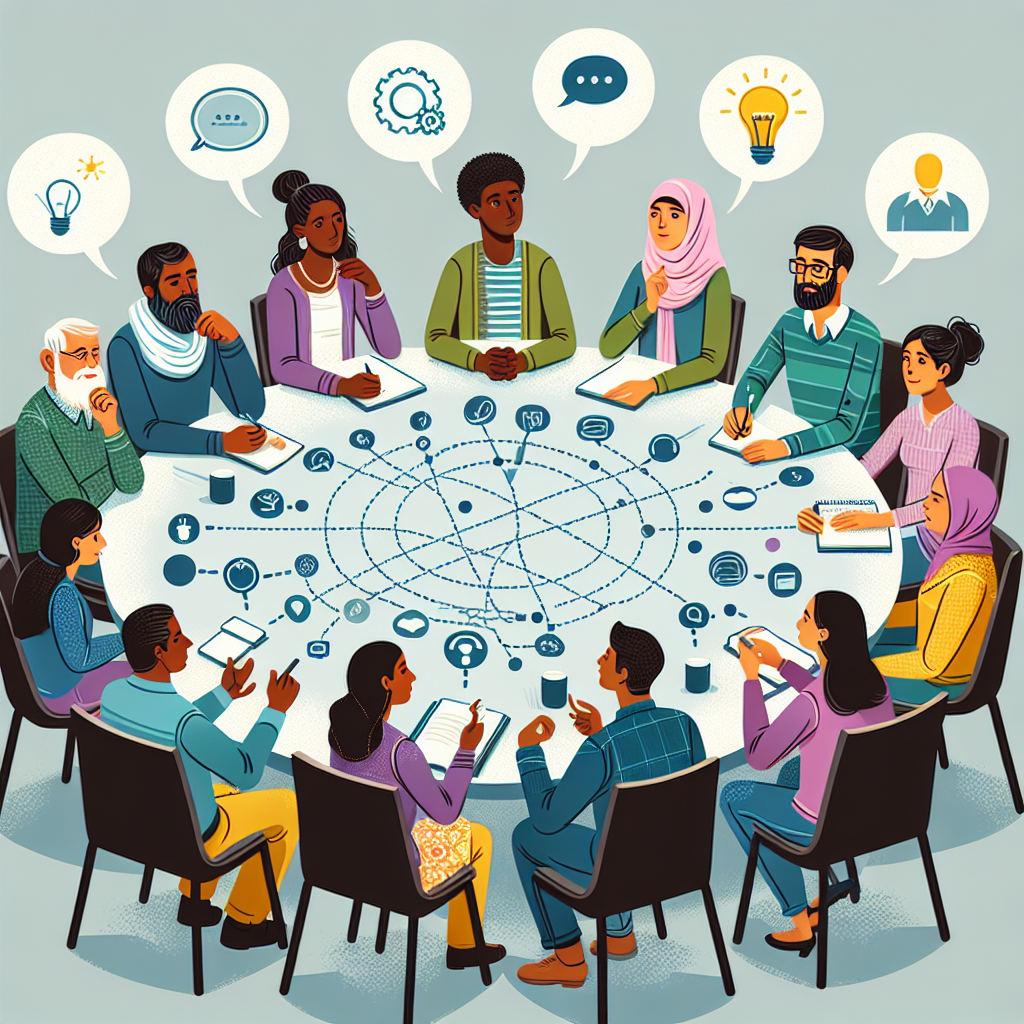Building strong relationships is vital in both personal and professional life. The key to fostering strong connections with others lies in effective communication skills. By honing your communication skills, you can improve your relationships, overcome misunderstandings, and build trust with those around you. In this article, we will explore how you can improve your communication skills to create better connections with others.
Communication is the backbone of any relationship. Whether it’s with a romantic partner, family member, friend, or colleague, effective communication is essential for building trust and understanding. When you are able to clearly express yourself and listen actively to others, you can avoid misunderstandings and conflicts, and create a strong bond with those around you.
One important aspect of effective communication is being a good listener. Listening is not just about hearing words, but about understanding the meaning behind them. When you actively listen to someone, you show that you respect and value their thoughts and feelings. To practice active listening, make eye contact, nod your head to show you are engaged, and paraphrase what the other person has said to ensure you understand their message.
Another key component of effective communication is being able to express yourself clearly and assertively. Assertive communication involves expressing your thoughts and feelings in a direct and respectful manner, without being aggressive or passive. When you are assertive, you are able to set boundaries, communicate your needs, and express your opinions without resorting to hostility or suppression.
In addition to listening and expressing yourself assertively, nonverbal communication is also crucial in building strong relationships. Nonverbal cues such as body language, facial expressions, and tone of voice play a significant role in conveying your emotions and intentions. By being aware of your nonverbal cues and those of others, you can better understand the underlying messages in a conversation and respond appropriately.
Furthermore, using empathetic communication can help you connect with others on a deeper level. Empathy involves understanding and sharing the feelings of another person, and it allows you to put yourself in their shoes and see things from their perspective. By practicing empathy in your communication, you can show compassion, build trust, and strengthen your emotional bond with others.
Building strong relationships requires effort and dedication. By honing your communication skills, you can enhance your interpersonal connections and create a positive environment for growth and mutual understanding. Here are some tips to improve your communication skills for better connections:
– Practice active listening: Focus on the speaker, make eye contact, and show empathy by nodding and paraphrasing their words.
– Speak assertively: Express your thoughts and feelings clearly and respectfully, while also being open to feedback and different perspectives.
– Pay attention to nonverbal cues: Be mindful of your body language, facial expressions, and tone of voice to ensure that your nonverbal communication aligns with your message.
– Cultivate empathy: Try to understand the feelings and perspectives of others, and respond with compassion and understanding.
– Seek feedback: Ask for feedback from others to improve your communication skills and adapt your style to better connect with different personalities.
In conclusion, effective communication is the cornerstone of building strong relationships. By honing your communication skills, you can create better connections with others, foster trust and understanding, and enhance your interpersonal interactions. Remember to listen actively, express yourself assertively, pay attention to nonverbal cues, practice empathy, and seek feedback to continuously improve your communication skills and strengthen your relationships.
FAQs:
Q: How can I improve my active listening skills?
A: To improve your active listening skills, practice focusing on the speaker, making eye contact, showing empathy through nodding and paraphrasing, and avoiding interruptions.
Q: What is the difference between assertive and aggressive communication?
A: Assertive communication involves expressing your thoughts and feelings in a direct and respectful manner, while aggressive communication is hostile and disrespectful. Being assertive allows you to set boundaries and communicate effectively without causing conflict.
Q: How can I cultivate empathy in my communication?
A: To cultivate empathy in your communication, try to understand the feelings and perspectives of others, put yourself in their shoes, and respond with compassion and understanding. Empathy allows you to connect with others on a deeper level and build trust in your relationships.





Leave A Comment